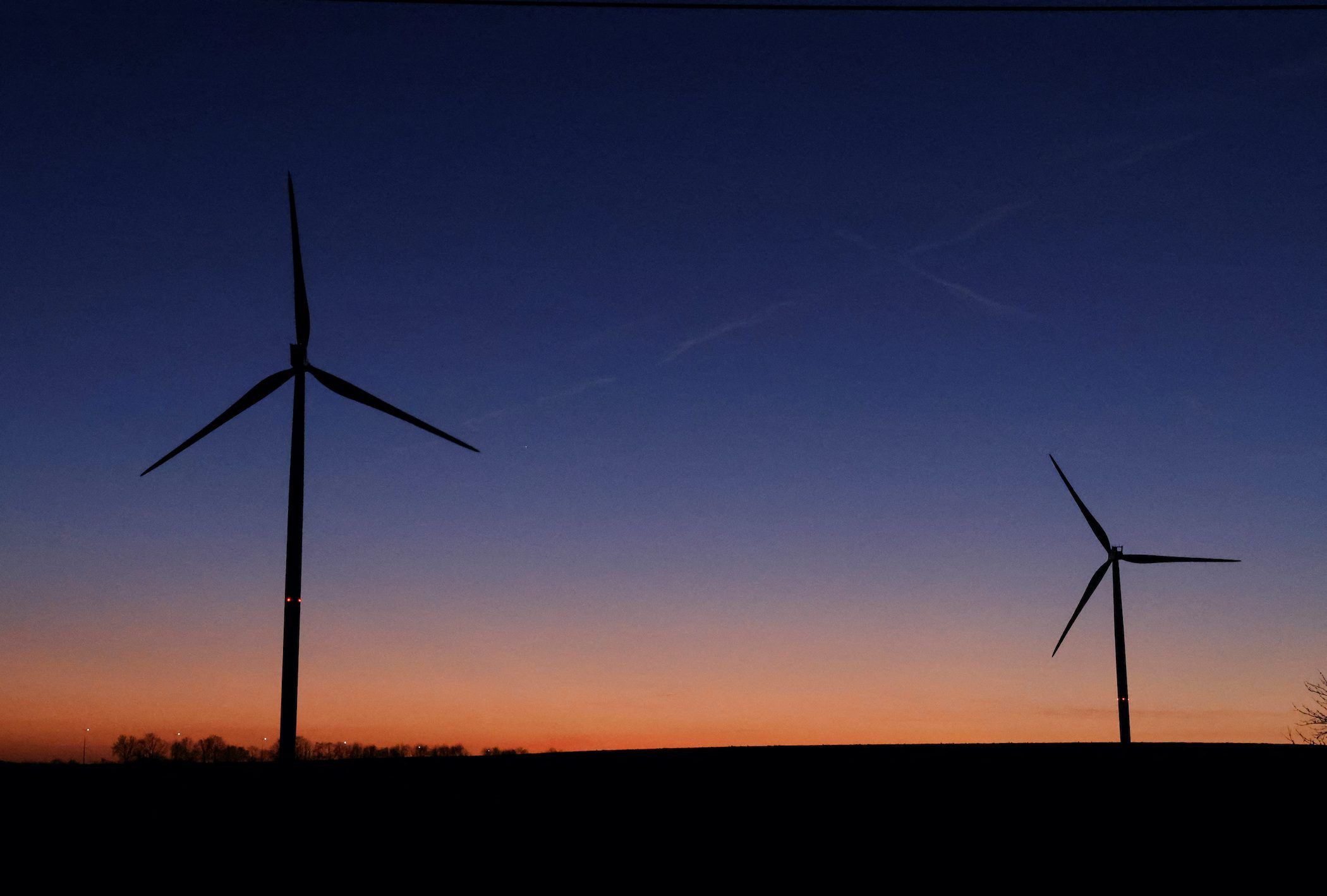SUMMARY
This is AI generated summarization, which may have errors. For context, always refer to the full article.

EEKLO, Belgium – Powering Belgian pensioner Bernadette Vandercammen’s art deco mansion in the northern town of Eeklo is a challenge at the best of times, let alone when soaring energy prices have left millions of Europeans struggling to pay their bills.
However, the 67-year-old now pays only about half of what she would pay a commercial provider because she belongs to one of Belgium’s dozens of local energy cooperatives – citizen-owned initiatives investing in renewable energy and energy efficiency.
Such cooperatives, which rely on their own production rather than buying from volatile markets, have seen a huge spike in demand as the energy crunch has hit consumers.
Vandercammen’s provider, a cooperative called Ecopower, supplies households at production cost – fixed for the life span of the energy source – topped up by grid fees and taxes, as well as the cost of running itself.
Ecopower says it has seen demand rise so sharply that it has had to stop accepting new members. With no spare production capacity, it would have to buy power on the spot market – where prices are at record highs – to supply more.
“Our promise is not that we are always going to be the cheapest,” said Ecopower spokeswoman Margot Vingerhoedt. “We provide an answer to the triple crisis of climate change, geopolitical dependency, as well as price inflation and energy poverty.”
“The sky-high prices make the situation worse and traditional energy firms do not address that because their main focus is profit.”
Eurostat said earlier this year Belgium had the highest energy inflation in the European Union, and the federal government has cut value-added tax for electricity among measures to bring down consumer bills.
A household using 2,000 kilowatt-hours (kWh) per year now faces a bill of about 570 euros per year at Ecopower, half of the cheapest commercial provider, according to the Flemish regulator’s calculator.
Set up in 1991, Ecopower is now Belgium’s biggest energy cooperative, with wind turbines and solar panels producing 80 million kWh last year and providing electricity to some 55,000 households.
Members can buy a maximum of 20 shares at 250 euros each, get dividends capped at 6% from surplus sales, and co-decide on where to invest next.
“It’s very important to keep everything in your own hands,” Vandercammen said on a visit to her three-level mansion. “With a cooperative like Ecopower, you have a say. That is very important, otherwise you are dependent on geopolitics.”
Ensuring stable supply off renewable sources and high storage costs are among current obstacles to significantly expanding the model, energy experts say.
More demand
Other Belgian cooperatives have also seen demand jump in the current high-inflation environment in which Russia’s invasion of Ukraine has aggravated the related climate and energy crises.
Energent said it has helped 694 households install solar panels so far this year, with the number of new subscribers in January-March alone topping annual figures for both 2020 and 2021, and requests for house insulation have also jumped.
“The prices are crazy now and people focus on that. But we are also going to get more people moving into energy cooperatives in the longer run as effects of climate change become even more tangible,” said Energent project officer An Van Hemeldonck.
In the Flemish regional capital, Antwerp, cooperative ZuidtrAnt has had to refuse people seeking to connect to its heating system that offers a fixed price over several years.
There are about 40 energy cooperatives supplying power to some 2% of Belgium’s households, but for that to grow more supportive laws are needed, said Oscar Guell of the REScoop international federation of such collectives.
“We advocate transformation away from outdated regulations and a centralized energy system designed for large energy companies and fossil fuels, towards a more decentralized energy model,” said Guell, who lobbies on behalf of nearly 2,000 cooperatives from Spain to Austria.
Flanders’ energy minister, Zuhal Demir, said she was a strong supporter of energy cooperatives. Belgium’s federal energy ministry said it needed more time to comment.
Belgium’s energy cooperatives are now joining forces to run in an offshore tender next year, which would be the first such case in Europe, said Ecopower engineer Jan De Pauw, putting the investment at 450 million euros.
“We want to be as independent as possible from the financial markets and the energy markets. That is why prices at the cooperatives are very stable even today in this crisis period, because we have production in our hands,” said De Pauw. – Rappler.com
Add a comment
How does this make you feel?








![[ANALYSIS] Why do we pay higher power rates when we have power outages?](https://www.rappler.com/tachyon/2024/07/tl-higher-power-rates-higher-power-outages.jpg?resize=257%2C257&crop=401px%2C0px%2C1080px%2C1080px)





There are no comments yet. Add your comment to start the conversation.